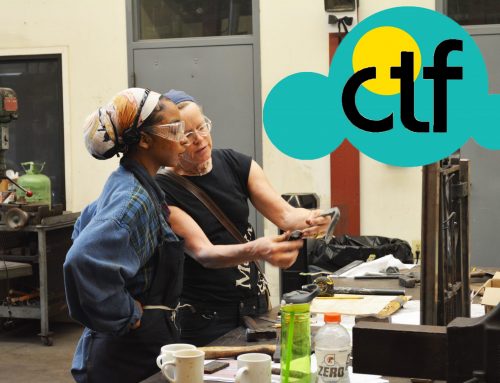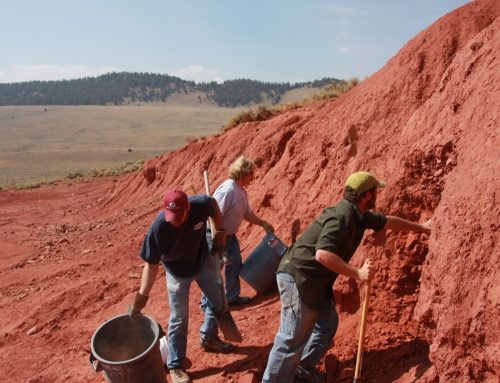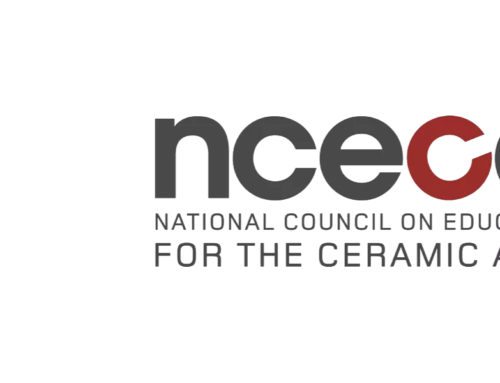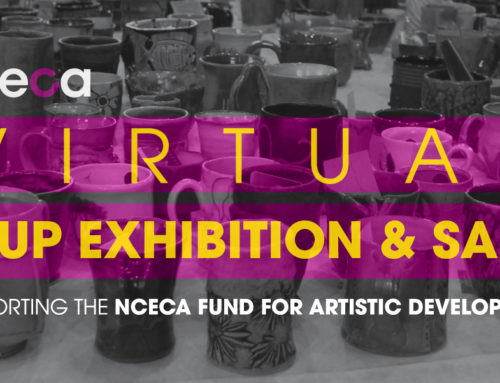Andrew Stansbury: An Ode to Missed Connections
“We didn’t have long, and you let someone skip in front of you. When it was our time, you choked back tears. “Oh honey, it’s okay,” I said, “we don’t gotta talk,” and I tried to give you the biggest, warmest hug I could, letting all the things left unsaid transfer.
At the end of the embrace, I think you said something like “I didn’t know we had such similar stories…” before we got cut off for the next conference talk. I tried finding you afterwards with no luck.

Is this you? Write to me, please.
I spent the NCECA Saturday hugging a lot of people. After the emerging artist talk, I had a line of people wanting hugs. I was a hug-machine. This felt a lot better than the past few days in the conference hall standing next to my work, where I watched people point, cover their mouths, and laugh at my body and art on the wall. Now, maybe they didn’t know it was me. I suppose, the problem of always wearing a mask is that I am never recognized next to my work, even though I am on full, bare display in it. Instead of engaging me in conversation, I was witness to the wrenching of their faces and their dismissive shaking of their heads as they walked away, never to look back.
By Friday morning, being witness to this constant stream of rejection took its toll. I had a mental breakdown from it all — from the drive from rural Minnesota to Pittsburgh, from the lingering recovery from the flu and a double-ear infection, from watching people’s dismissive reactions, from utter exhaustion, from just feeling so unwelcomed.
It’s not that I didn’t expect my work to trigger some realm of emotion, I just didn’t expect to be so negative, I didn’t expect to be ignored, I didn’t expect to hurt as much as it did. And I have to apologize to the other Westin breakfast eaters that Friday morning because I had a good, audible cry over my uneaten cold, sad eggs and bacon. I held hands with my first ceramic instructor, Debra Chronister, and then after that purge I went to my room and changed my presentation and talk.
That’s how my talk manifested. I confronted my nervousness and I let intuition and improvisation take over. My mentors taught me to embrace that feeling — nervousness — because it means you’re on the right track. Nervousness is just a false fear of failure that’s stopping you from taking that risk. My mentors, Debra Chronister, Ovidio Giberga, Libby Rowe, and Jim Lawton, have all given me the space to follow my gut and to be present, to allow myself to be open, to be vulnerable to the utmost degree. But perhaps the hardest lesson I have had to learn is to let myself love. As my dear Gery “Rocketskull” Henderson repeatedly told me, “You deserve to love.”
Loving myself has always been a challenge and continues to be to this day. In some ways, my studio practice is my self-care as well as my self-preservation. If I hadn’t found clay, I wouldn’t be alive, a sentiment I hear too often from queer artists. Clay, for me, is an act of performance and is only the starting point. Back in the day, Ken Little gave me the best criticism of my undergraduate work: “What else can you do?” A lot, I think.
In the end, my work is about love, about acceptance, about recovery. I was once told in a graduate school critique, in response to the trauma I have experienced, that I had won the lottery of life, that I have really lived. But there is nothing good of living through trauma; it is not a fucking lottery. If anything, the “tortured” artist trope needs to die by stone-throwing, and we should turn our attention to ending the violences that allow this trauma to continue to occur. Trauma isn’t a selling-point. It is what we seek to end.
I have to thank the people who have stood in my way and told me not to make my work. It’s the fuel to my fire. And I use it to burn down their hopes and dreams of what my work should be and what work in ceramics should be. Take some fuel, my dear reader, and burn everything down and start anew. Tear it all down. Out of politeness or out of fear, we leave many words unsaid, so…please…set ablaze to all the obstacles stopping you and let your story be told. Make your presence heard, and be as visibly free as you want to or can be.
Below, watch the complete video of Andrew’s talk at NCECA 2018.
We don’t have to talk. We have to create.”
Ben Aqua, CREATING > COMPLAINING shirt, 2017
http://benaqua.org/post/165909548010












